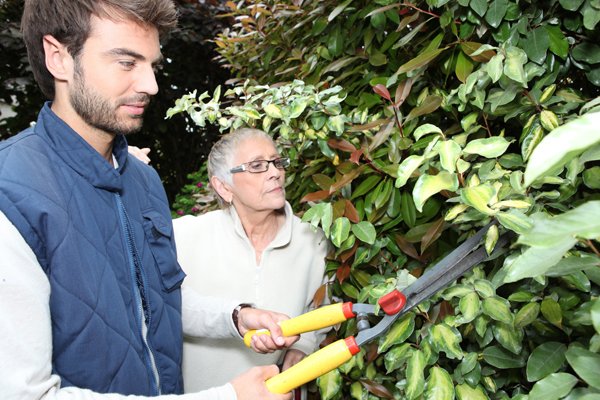Eating more healthy food is a goal for many families, who value a good diet and want nothing but the best quality food. Organic food is a perfect choice for this purpose, since it doesn’t just taste great, but it also loads the environment with no toxic chemicals and pesticides. This generally comes at a price, namely organics being more expensive.
If you are a gardening enthusiast, you should definitely consider growing your own organic garden. You can either hire gardening experts to help grow and care for your garden, or you can try this on your own. It may seem like much of work, but the end result is definitely worth all of the effort. Remember: you don’t have to strive for perfection. Start off small and soon enough you will see the great results. Here is what you should do:
- Prepare the soil – plants require properly conditioned soil in order to grow. It is a requirement for strong and healthy vegetables. Before you proceed, you should test the soil. Best way to do this is send a sample to a gardening service to get a list of nutrients and pH values and a recommendation on what treatments you should consider. Best time to do such test is during fall so that you can implement organic nutrients by winter.
- Consider compost – organic gardens can greatly benefit from compost, and for this reason you should consider building your own site. You can feed your plants and utilise all of your garden waste. You can designate an area and create a simple bin or pen where you add layers of carbon-rich organic material (trimmings and leaves) and nitrogen-rich material (manure and kitchen scraps). Add few inches of soil on top and regularly turn the pile.

- Select your plants – carefully consider what plants you grow. There are many factors that determine this: soil quality, moisture, light. Choose plants that are best for the micro-conditions of your area.
- Weeding – the best way to tackle the problem of weeds is to pull them by hand. It is a lot of work, but it saves the need to use chemicals to combat this issue. One trick you can use in gardening is applying organic mulch, which can greatly reduce weeds.
- Plant in raised beds – you should group your plants, such as vegetables and cutting flowers together on raised beds that you don’t walk on. Grouping is great for reducing the water waste and weeding, plus it helps with better targeting nutrients.
- Watering – gardening experts suggest that the best time to water your plants is in the morning. This is because mornings are cooler and thus there is less water lost to evaporation. Always target the roots, not the greenery, which is why you should consider watering by hand or installing a soak or drip system. Water once or twice per week for established plants, but do consider rain as well.
- Pest protection – one good idea you should consider, if you want to avoid using pesticides, is to foster natural predators, such as lizards, toads and birds. Include small blossom plants like dill and alyssum in order to attract insect predators. Nets and covers work too.
- Harvest time – remember that you should harvest the fruits of your organic garden every day, during peak harvest season. If you have herbs, you should use them right before you pick them, whereas for storing them you should wait till they flower. If you have been effective in your gardening and are left with more than you can consume, you can always freeze some of the produce.
Organic gardening can be truly rewarding, if you take your time in understanding the basics behind it. Growing your own healthy food.